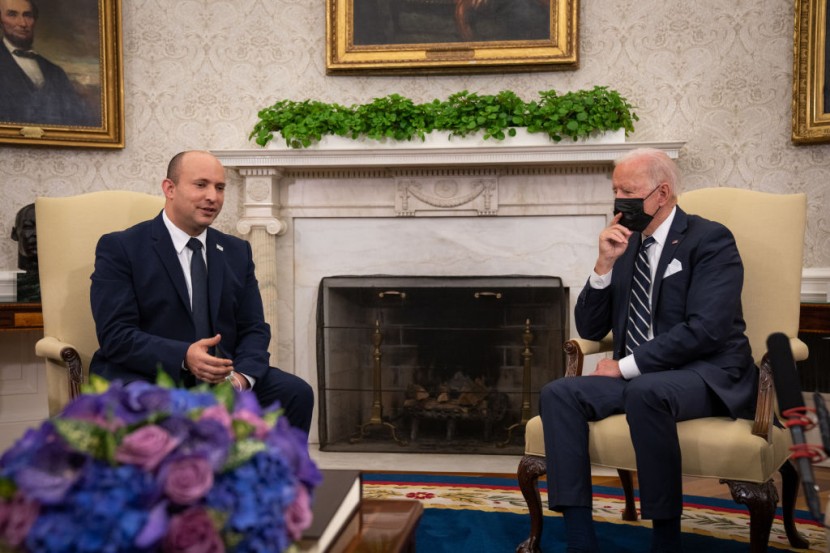
United States President Joe Biden is set to visit Israel later this year after Israeli Prime Minister Naftali Bennett invited the Democratic leader to talk about blocking Iran's nuclear program.
White House officials on Sunday said that the two leaders were able to discuss the shared security and other challenges in the Middle East region. The conversations include the threat that Iran and its proxies pose.
Biden To Visit Israel
Furthermore, President Biden underscored his previous commitment to the expansion of stability and partnership across the Middle East region. It is exemplified by the Abraham Accords that involve Israelis and Palestinians who enjoy equal measures of security, freedom, and prosperity.
Biden and Bennett also discussed Wednesday's counterterrorism raid that occurred in northwestern Syria which resulted in the death of an ISIS leader. The individual was identified to be Abu Ibrahim al-Hashimi al-Qurayshi. The operation was the biggest U.S. raid in the country since the 2019 operation that resulted in the death of ISIS leader Abu Bakr al-Baghdadi, as per CNN.
Furthermore, the statement that the White House released noted that the Democratic leader was giving his administration's full support to replenishing Israel's Iron Dome system. The program is an air defense system that is designed to intercept short-range rockets and defend against foreign threats.
The two leaders also discussed Russia's potential aggression against Ukraine as Moscow continues its buildup of military troops on the border. Previously, Israel has voiced its concerns regarding the U.S.-led efforts to restore the Iranian nuclear deal of 2015. The agreement was between former United States President Donald Trump in 2018.
The Hill reported that long-time Iran adversary, Israel, opposed the initial agreement, arguing that it would not prevent Iran from developing nuclear weapons capabilities. A senior State Department official said last week that the U.S. and Iran have only a "handful of weeks left to get a deal."
Iran's Sanctions
The situation comes as the Biden administration restored a sanctions waiver that will allow nations to cooperate with Iran regarding civil nuclear projects. The move was announced by two senior U.S. officials on Friday.
However, the senior State Department official reassured that the waiver was not a concession to Iran nor was it a signal that a deal was close to being made between the two nations. The waiver also comes as officials who are involved in the ongoing talks in Vienna working to save the deal are rushing political decisions.
The official said that they were issuing the waiver now for one simple reason: that it will allow international allies to provide more detailed technical discussions to enable cooperation. They added that the discussions were necessary for the final weeks of the Joint Comprehensive Plan of Action (JCPOA), the formal name of the nuclear agreement.
They warned that if talks did not result in a return to the nuclear agreement, technical discussions could still contribute to non-proliferation goals. The waiver allows companies and other countries to assist with civil nuclear projects at Iran's Bushehr nuclear power station, Arak heavy water plant, and the Tehran Research Reactor, according to Aljazeera.
Related Article:
© 2026 HNGN, All rights reserved. Do not reproduce without permission.








